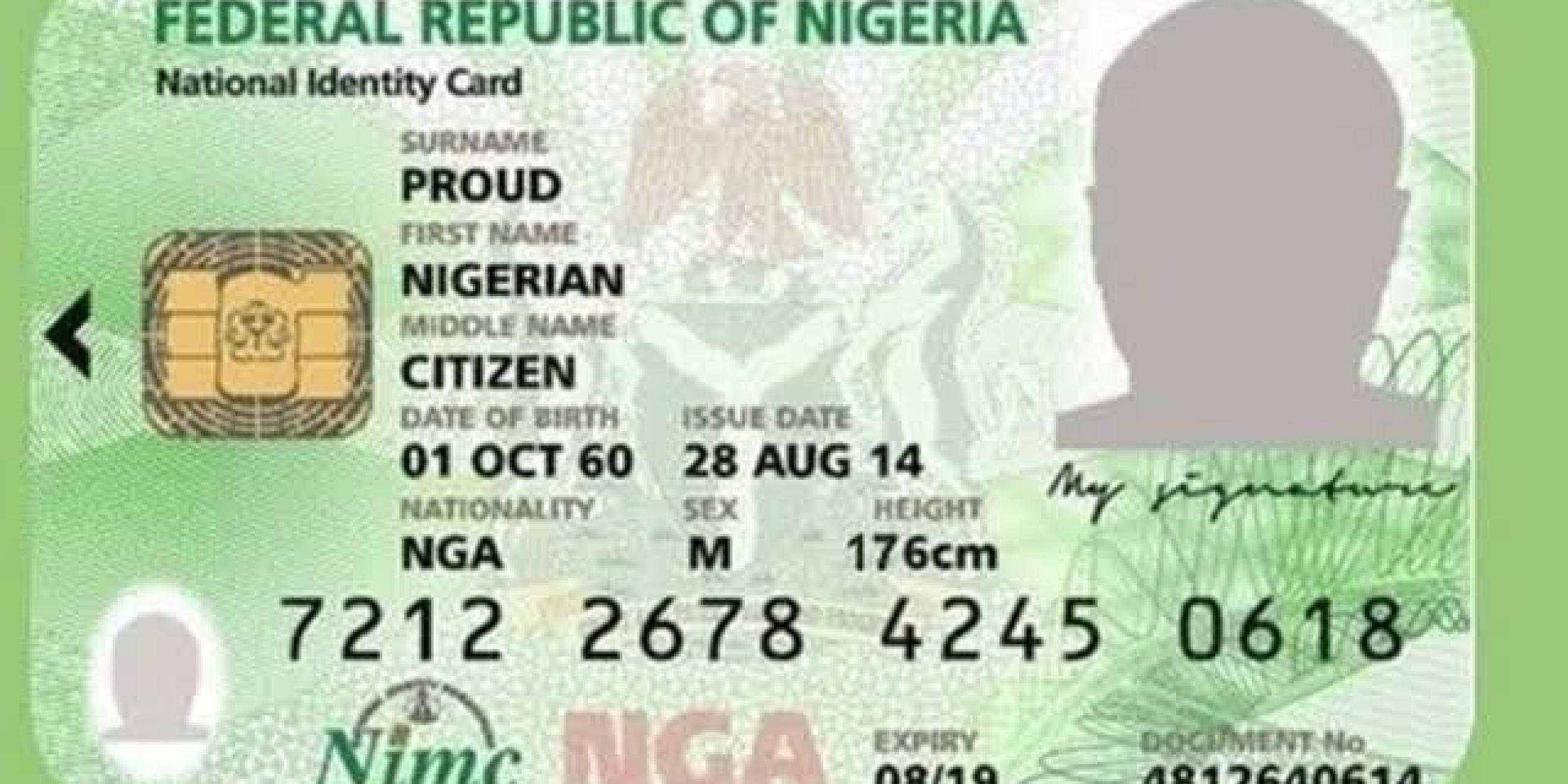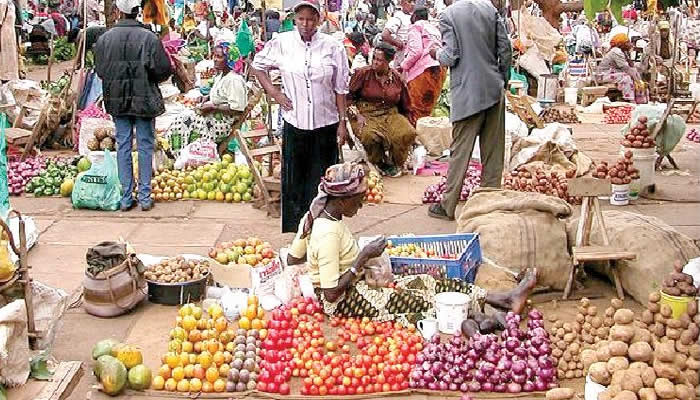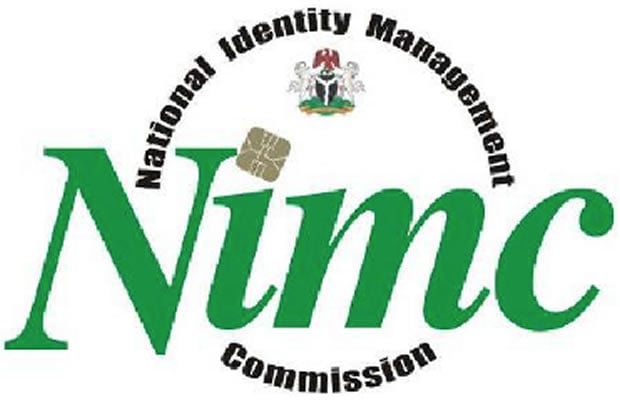When SaharaReporters visited the community to find out how many of the residents had been issued a NIN, some of the residents threw the question back to the journalist.
Madam Alheri Danladi is a septuagenarian, a market woman and resident of Guita-Kuchibuyi, an outskirt community in Kubwa suburb in Abuja, the Federal Capital Territory (FCT) of Nigeria.
When SaharaReporters visited the community to find out how many of the residents had been issued a NIN, some of the residents threw the question back to the journalist.
“What is NIN? There is no government presence here. Even to make mobile phone calls sometimes is a challenge. We don’t have good network,” one of the youths answered.
“We don’t even know where their centre is in Kubwa here. We don’t have police station, no hospital, no government’s presence at all,” Madam Danladi also lamented.
If Guita community is a remote area, Saura in Keffi, Nasarawa State, North-Central Nigeria is more rural.
Residents in Saura area of Nasarawa who spoke to SaharaReporters noted that the absence of good network meant that they had to go to Keffi to enroll for NIN.
A resident, Audu Ibrahim, stated that residents in Saura are not literate enough for the process of enrolling for NIN coupled with the fact that they have to go more than 20 kilometers to Keffi.
“It is not so easy for us, imagine that you have to pay transport to Keffi to enroll and people here are not so educated, so they do not know how to handle the process even if there were a network,” a female resident, Jummai, corroborated.
At Keffi Wambai, Kwandere and other communities on the outskirts of Lafia, the Nasarawa State capital, SaharaReporters gathered that although the government centres do not charge money for enrollment on NIN, most persons rely on cyber cafes and then end up paying for the service in the process, doubling their needed conditions.
Places in Abaji (Abuja) Toto (Nasarawa) and other remote areas suffer poor internet connectivity and poor accessibility, all hindering ability to enroll for NIN.
In Nigeria, the National Identification Number (NIN) is a compulsory registration for persons from the age of 16 upwards.
Upon successful enrollment, the NIN is a unique set of numbers assigned to an individual for official purposes.
According to data published by the National Bureau of Statistics (NBS), in 2019, a total number of 5.8million National Identification Numbers were issued, the figure stood at 5million in 2020, and 27million in 2021.
As of November 2024, 115 million Nigerians have been said to have enrolled for National Identification Number, according to the National Identity Management Commission (NIMC).
However, many more Nigerians are yet to enroll and get their own NIN, especially those in rural areas.
Checks by SaharaReporters shows that the NIMC owns a website where one can pre-enrol online, obtaining the National Identification Number. However, one major requirement for accessing such websites is the internet.
Through all processes included on the enrollment website, the internet is a key tool to be used.
The other way to enroll for the NIMC scheme is through visiting the NIMC walk-in centres, however, the processes there are still subjected to internet availability.
This then opens up discussions on potential challenges faced in enrolling persons in the rural areas on NIN.
Data from Trading Economics show that the rural population in the country is pegged at 102.3 million.
One of the issues mentioned by residents in rural areas who spoke with SaharaReporters is that of accessibility in registering for the NIN.
Data by the GSMA shows that only 23% of Nigerians and other Africans in rural areas used the internet in 2022. Another 73% are said to lack access to internet services in rural areas.
It was reported that in 2023, only 15% of the population in rural areas owned a smartphone.
In 2020, the National Identity Management Commission secured a world Bank funding to enable NIN reach 150 million persons within two years.
“This will enable people in Nigeria, especially marginalised groups, to access welfare-enhancing services. The project will also enhance the ID system’s legal and technical safeguards to protect personal data and privacy.”
“This is financed through an International Development Association (IDA) credit of US$115 million and co-financing of US$100 million from the French Agency for Development and US$215 million from the European Investment Bank,” the World Bank statement noted.
Data from the published statement shows that the country has fallen short of the peg with 110 million persons enrolled falling short of the 150 million target set for 2022 (a couple of years from 2020).
The NIN is used to eliminate fraud, access services, track crime, curb corruption, and reduce costs.
Another issue noted by respondents is the issue of payments they were made to ask to pay for instance to obtain NIN and rectify details on their NIN portal.
For instance in Zuba, Abuja, a respondent, Farouk Musa, noted how he was asked to pay N16,000 to rectify date of birth details on his NIN.
He is not alone in the experience of extortion; another respondent in nearby Tunga Maje community noted that he was asked to pay to register for NIN.
Survey by SaharaReporters showed that many people do not know about the processes involved in NIN, and hence fall into the traps of illegal payments.
Checks by SaharaReporters showed that rectification of date of birth on NIN is being done for N15,000.
Details show that NIN registration for adults and minors is free, modifications (with exception of date of birth) cost N500, re-issuance of NIN slips cost N500.
Respondents Awareness on Importance of NIN, Low
Many of the respondents engaged by SaharaReporters had rather low knowledge on the importance of the NIN. Many in the rural areas told SaharaReporters that not wanting their SIM cards blocked was why they registered for the NIN.
Others noted that the usage of the NIN for bank accounts opening was why they enrolled in the scheme.
However, just a few of the residents in sampled areas could speak to it being a tool for identification and national database in the country.
Speaking with newsmen at an interactive session in Abuja, Dr Alvan Ikoku, Deputy Director at NIMC and Head, Strategy and Programmes Office, acknowledged the challenges in the rural areas.
He also highlighted the steps and projections ahead of the commission to tackle the challenges.
Dr Ikoku said, “The NIN can be verified by service providers, anytime, and anywhere for access to services. It is linked to a digitised civil registration system. It is technology and vendor neutral and built with legal, technical, security safeguards to ensure data protection and privacy. We also rolled out using an ecosystem approach.
“Based on the benefits attained in the implementation of the NIMS thus far, the National Identity Management Commission (NIMC) is set to gain more mileage and bequeath a sustainable legacy of excellence in the management and delivery of government services in Nigeria if she gets the right support.
“The challenges are; one, Resource Constraints: Limited funding and resources hinders efforts to expand services, improve infrastructure, and invest in technology upgrades.
“Two, Infrastructure Constraints: Insufficient technological infrastructure, particularly in rural areas limiting the ability to efficiently collect and manage identity data. This includes issues related to power supply, network connectivity, and access to biometric capture devices.
“Also, Identity enrollment perception: Encouraging citizens to enroll in the national identity management system can be challenging due to concerns about privacy and data security.
“There is also limited Public Awareness and Education: There has been limited awareness about the importance of obtaining a national identification number (NIN) and understanding the benefits of the national identity management system among citizens can be an ongoing challenge.”
“To address these challenges, we have projections such as; the development and deployment of new verification and authentication solutions that guarantees
seamless verification and authentication of persons.
“Two, to intensify the harmonisation and integration across all government agencies and ensuring the mandatory use of NINs.
“Also, to revise the NIMC Act to strengthen the Commission’s legal and regulatory framework and investment in advanced cyber security technologies and conducting regular personnel training to strengthen data security.”
Report by: Amos Olaleye Aluko and Samuel Oyedeji.





